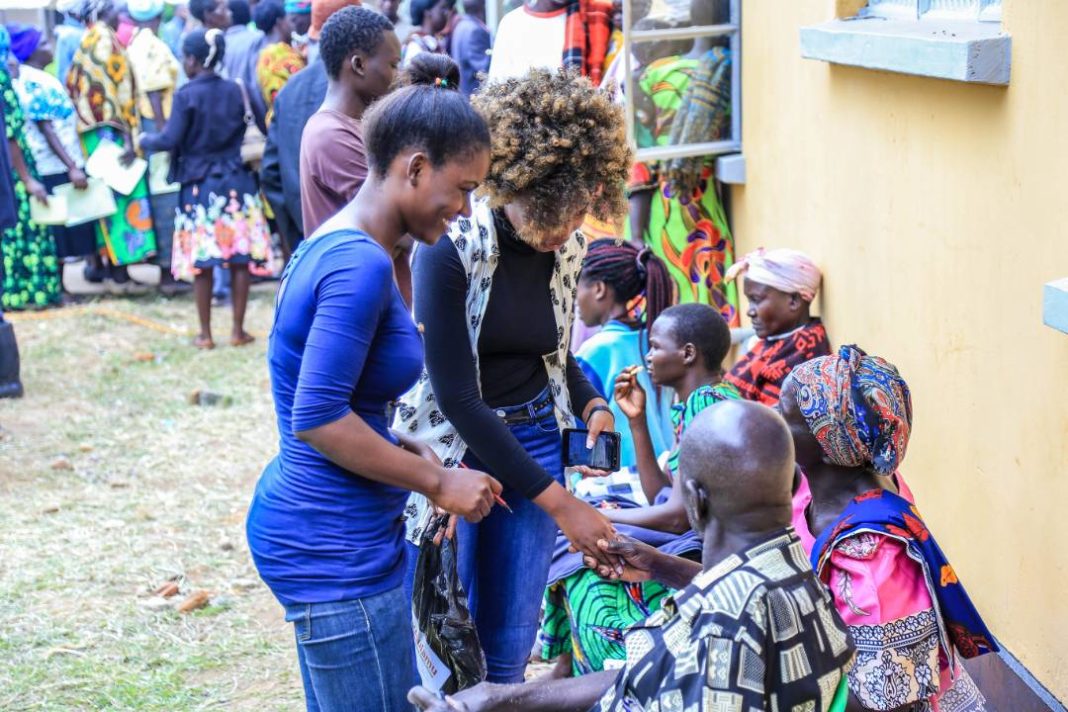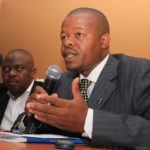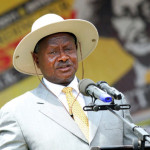Kumi: She is partially blind— the after effects of not accessing HIV/Aids medicine. She lives in a leaking dilapidated mud and wattle hut deep inside Kumi district.
With her son, a child she conceived through an unwanted pregnancy from a local idler, she spends her days siting in the doorway of her hut, begging bowl in one hand awaiting a good Samaritan to throw in a shilling so she can get what to eat—on most days luck doesn’t strike.
Agnes Apule, thirty-ish, is stick thin. Sick. Hungry. But when she heard, through word of mouth around the village, that there will be a health camp in Kumi where they will be giving free medical care to Aids patients hope struck.
“I want medicine. I am sick and I am too tired,” is what she could inaudibly mutter on arriving at the medical center, carefully moving her probing cane around so she could get a clear path.
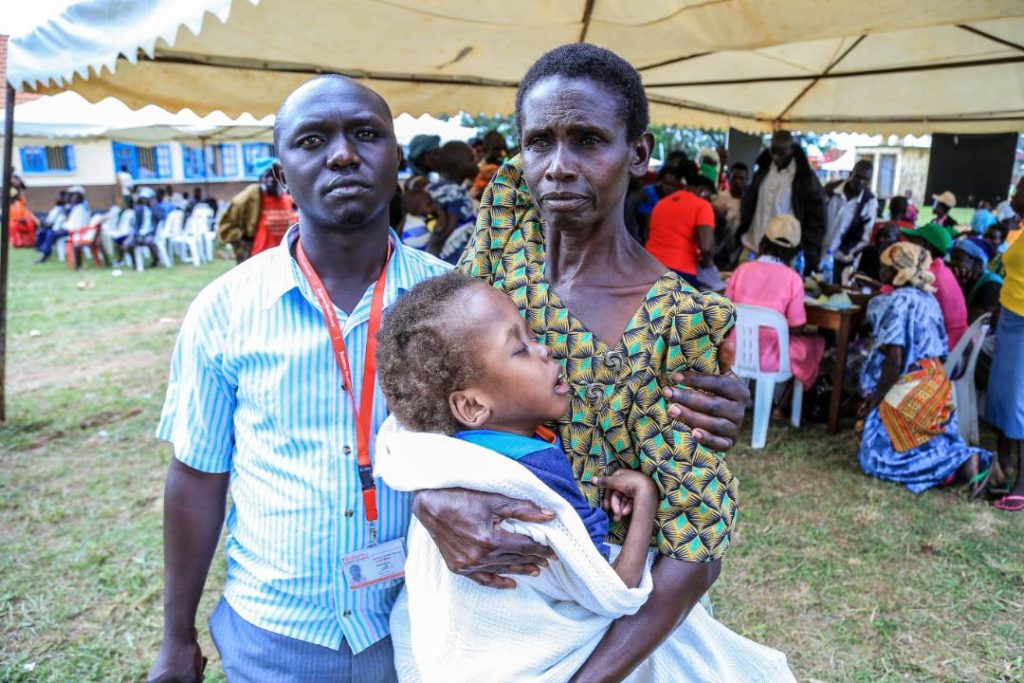
She had walked for 2KMs under the scorching Kumi heat. From a distance, the pungent smell of her salty sweat mixed with the odor of days of not showering hit my nostrils. Those standing near coughed in disgust.
The sheer effort to speak is too demanding as the nurses rush to her attention. She is about to pass out.
“I have too much pain. I have wounds on my private parts and I feel I have wounds inside my body,” she told one of the nurses in a painfully measured tone followed by a deep breath.
Raped and abandoned as a young woman, Apule suffered the stigma of rejection from both the society and her family, without protection nor food, she suffered at the hands of local drunks and men who raped and used her continuously causing her to contract the HIV virus and other STI’s.

Fistula, a condition she got during child birth was what was immensely hurting her as she sat in the nurse’s tent. For the first time, though, she was not feeling rejected—someone was listening to her without covering their nose; without judging her.
Bulamu Health camp is an initiative of Bulamu Health International which hops from one district to another giving medical access to the impoverished and less fortunate communities around the country.
Patients like Apule tap into the Angel program, to be started on a medication routine that they would otherwise never get due to the inaccessibility of the areas they stay in and lack of funds.
“As soon as they (patients) are deemed to be qualified for the Angel program then you can be rest assured that we shall take care of everything and ensure that these people are treated back to full health,
“I have witnessed Apule’s condition in many patients across the country ever since we started the program and I can assure you that with the right assessment and treatment she will be back on her two feet in a couple of months,” Charles Masolo, the head-Angel program said.
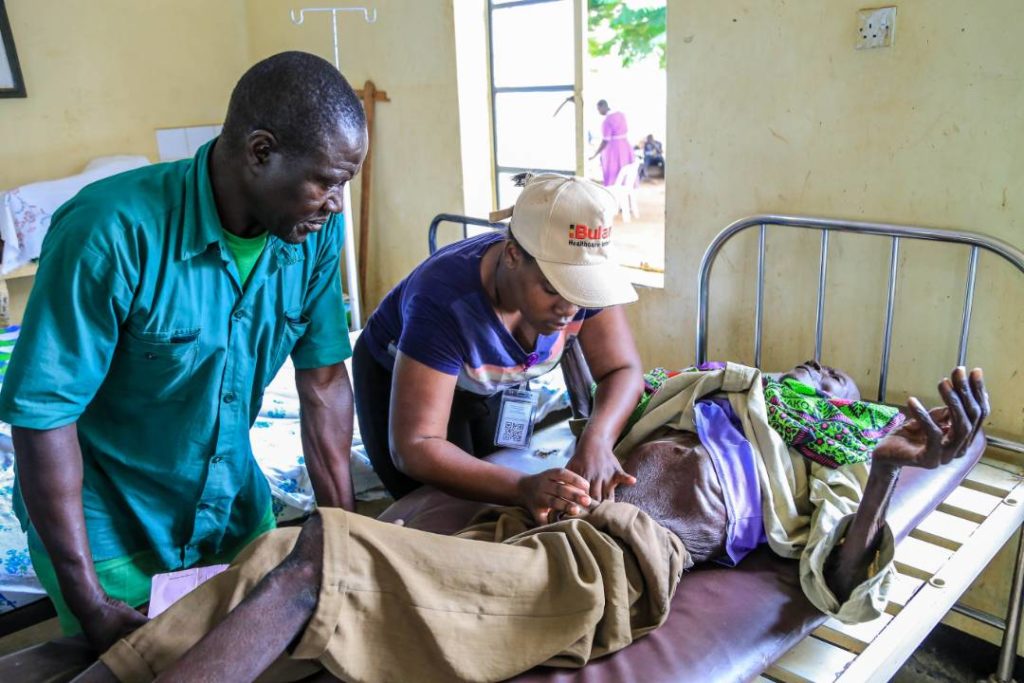
The Kumi camp was attended by thousands. A treatment roster showed that 11,000 patients had been treated including 400 surgeries performed.
Mr Odea Robert Apedel, the area LC 3 chairman said that the presence of the Bulamu camp and availability of free medication broke the no drugs and treatment spell that constantly plagued the health facilities within the district.
“I am thankful for the services that have come with this organization, many people have benefitted including myself after getting the opportunity to finally take a prostate cancer exam,” Mr Odea said.
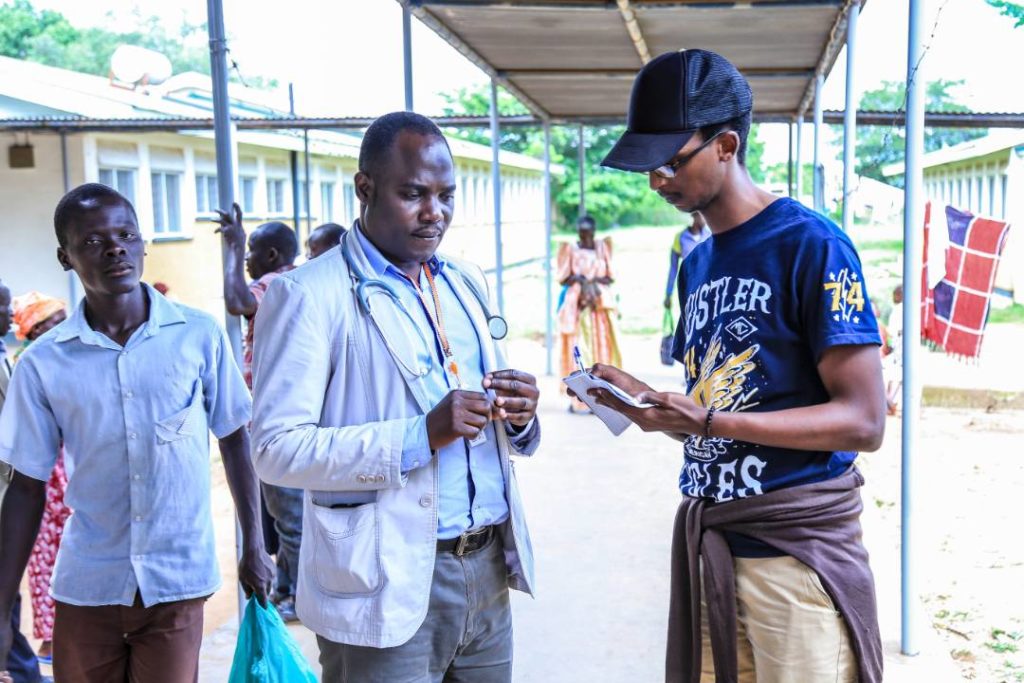
Kumi district Assistant health Officer, Apio Christine, echoed the similar sentiments pointing out the huge turn up of patients as a sign of the severe lack of medical facilitation in the area and described the camp as a timely intervention.
“Bulamu has really given us huge support and opened our eyes to diseases that were even unseen and usually unaccounted for in the health surveys,” she said.
Apule was enrolled into the Angel Program and when the Mr Masolo was contacted to find out her condition he said she was responding positively.
“The problem is that she was not taking drugs. She now has them and we will keep monitoring her for positive results,” he said.




